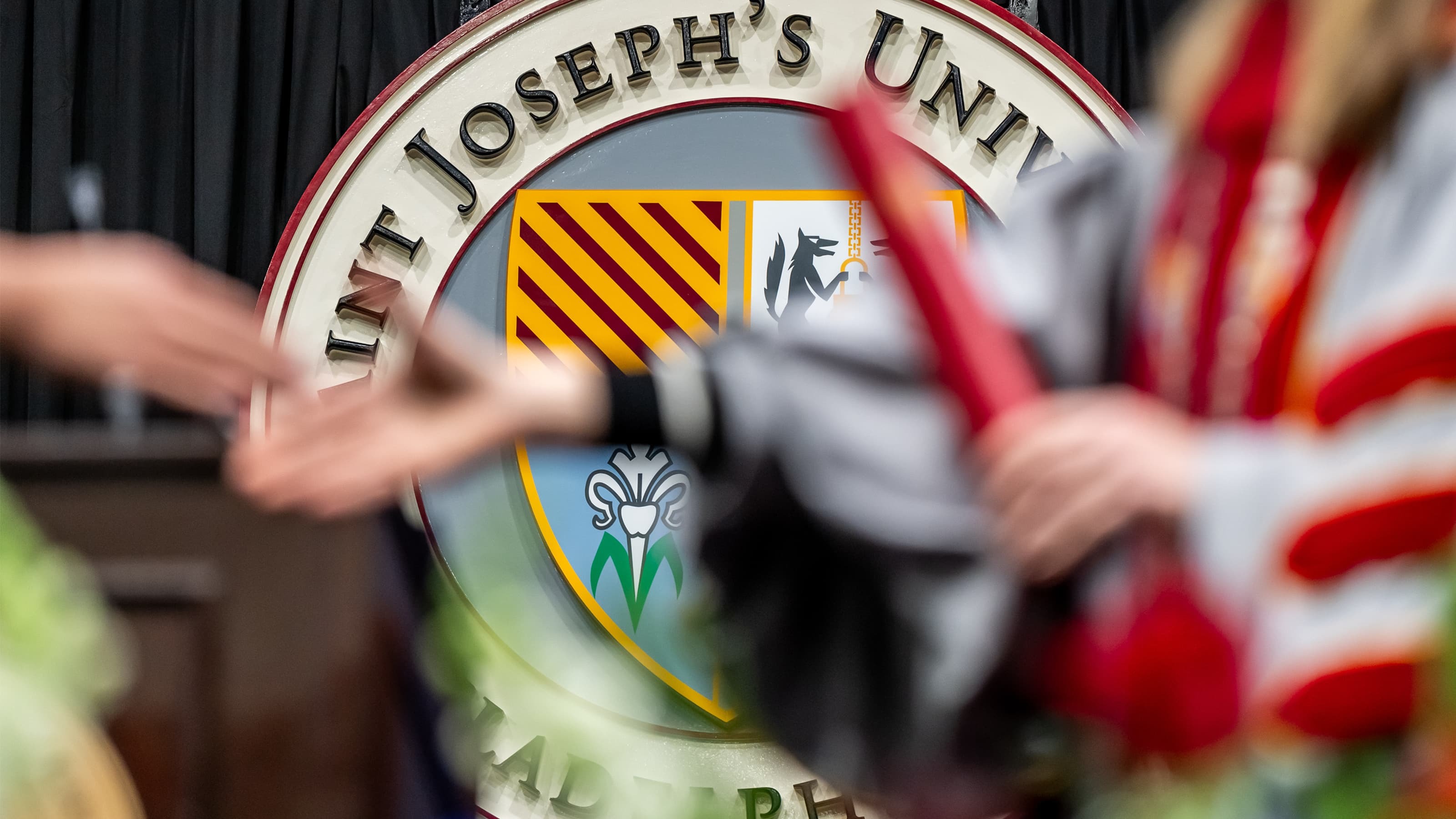Saint Joseph’s University Launches Substance-Use-Prevention Program for Delaware County Middle and High Schools
Funded through a $500,000 grant from Delaware County’s opioid settlement fund, Prevention Academy will support school communities in building a culture and climate of prevention.

Despite what may be portrayed on social media or the news, adolescent substance use has been significantly trending downward over the last half a century, according to the nationwide study Monitoring the Future. Here to reinforce these healthy behaviors and teach prevention strategies to adolescents and the adults who care for them is Saint Joseph’s University’s new Prevention Academy.
Prevention Academy, housed within the University’s School of Education and Human Development, is a comprehensive prevention education program for school-aged students aimed at supporting adolescents and their caregivers in healthy living and informed decision-making as it pertains to substance use. The Academy is funded through a $500,000 grant from Delaware County’s opioid settlement fund — the University’s second round of funding following the award of a $400,000 grant in the fall.
“We’re thrilled to build and pilot this important initiative in Delaware County schools and look forward to expanding it throughout the region in the coming years,” says Joshua Power, BS ’05, EdD ’16, dean of the School of Education and Human Development.
Prevention Academy will officially launch at the start of the school year this fall in five Delaware County middle and high schools. The program uses a multi-faceted, evidence-based approach, which includes nurturing protective factors such as positive relationships, extracurricular activities, healthy coping skills and developing empathy; identifying and reducing risk; and intervening in unhealthy attitudes and behaviors.
“What we know, and what data consistently shows, is that the overwhelming majority of high school students are making really healthy choices about not using substances,” says Kiersten Simon, MEd, CAADC, Prevention Academy program director. “By having real-time, data-informed discussions with kids and the adults who care for them, adolescents will actually advocate for their own health and wellness as it relates to using substances, and they will also advocate for the health of their peers.”
... the funding we received during the last round emphasized this is true in Delaware County: Schools want more collaborative relationships with parents and guardians.
Allison Dukes, PhD, NCC
Assistant Professor of Clinical Mental Health Counseling and Prevention Academy Faculty DirectorGuided by the adage “it takes a village,” Prevention Academy curriculum includes educational seminars, workshops and programming for students, as well as teachers, parents, guardians and community members.
“As pandemic restrictions subside, the parent and guardian-school divide seems to be even larger, and the funding we received during the last round emphasized this is true in Delaware County: Schools want more collaborative relationships with parents and guardians, and parents and guardians might not understand ... how to even get involved in their student's school communities,” says Allison Dukes, PhD, NCC, assistant professor of clinical mental health counseling and Prevention Academy faculty director.
Prevention Academy school programming will be conducted by prevention specialists who undergo rigorous training delivered by Pathways for Prevention consultants, including weekly educational sessions and an intensive, weeklong training on Saint Joseph’s Hawk Hill campus. Ultimately, the Prevention Academy team plans to employ a “train the trainer” model so that more and more adults can discuss healthy behaviors and decision-making around substances with adolescents.
Additionally, Saint Joseph’s graduate students who work in or plan to work in helping professions, including teachers, school counselors, social workers and more, will be trained to approach addiction from a prevention standpoint — not just from a recovery perspective.
“What is regularly missing from this conversation is continuous, sustained efforts at prevention. And celebrating good decision-making — that’s prevention. It’s flipping the conversation to factual, upstream data-driven conversations that dispel false normatives and celebrate the human spirit,” says Simon. “Fortunately, schools are a natural environment to nurture, support and build a culture and climate of prevention.”
Research and evaluation will be conducted by Dukes and Jennifer Niles, PhD, assistant professor at University of North Carolina at Greensboro, to ensure that community needs are addressed and met, allowing the program to evolve and expand.
To learn more about the Prevention Academy, visit sju.edu/prevention-academy.



